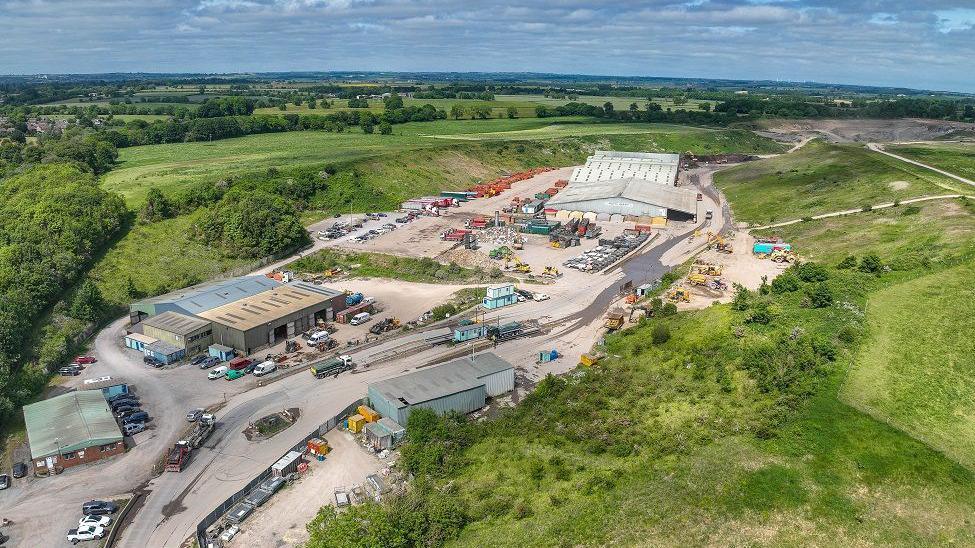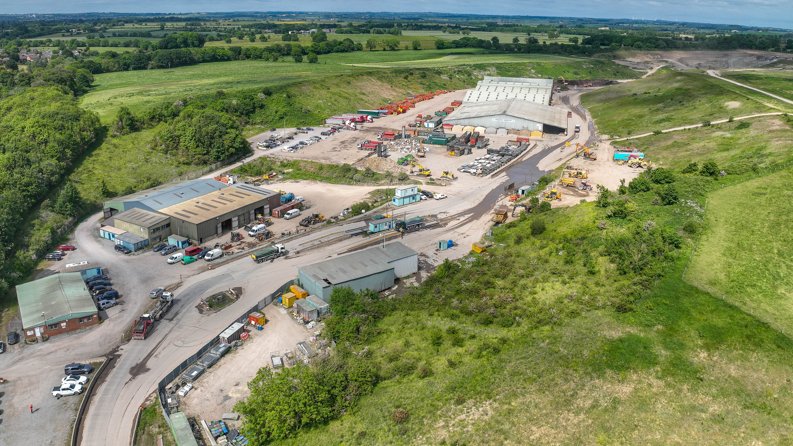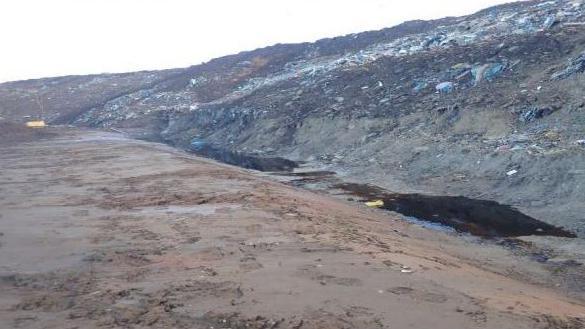'Rotten' smell not causing long-term health risks

The smell was first reported back in 2023
- Published
People affected by a "rotten egg" smell thought to be from a nearby quarry have been told there are no long-term health impacts, despite concerns about breathing difficulties.
Residents in Darlington, Newton Aycliffe and the surrounding villages have reportedly experienced skin rashes and headaches due to the stench since it was first reported in 2023.
Emissions from Ashcourt Quarry have reduced in recent months following a fixed odour monitoring unit being installed by the Environment Agency.
Last month, the Ashcourt Group said a recent test for gas emissions did not raise any concerns and it was capping a large section of the landfill on the site.
Councillor Bryony Holroyd told a Darlington Borough Council health scrutiny meeting how residents continued to report the presence of the toxic smell, according to the Local Democracy Reporting Service.
"There's major concern about breathing difficulties in the north of Darlington because hydrogen sulphide produces the smell of rotten eggs," the Green Party councillor said.
"Your airways burn and I’ve heard of people getting skin rash issues, headaches and long-term exposure which is generally unpleasant."
'No evidence'
The meeting was told work to stop the smell was ongoing and health officials at Darlington Borough Council urged residents to see a doctor if they continued to suffer from health issues.
Lorraine Hughes, director of public health, said: "The advice we’ve had from the Health Security Agency is that there aren't any long-term health risks but that's not to disregard those short-term irritations.
"Some people are more sensitive to it than others."
Despite people still reporting the stench, the meeting heard how emissions from the site had reduced in recent months.
Ms Hughes added: "I can understand it seems to have taken a while but the work being carried out is having a positive impact."
Follow BBC Tees on X,, external Facebook, external, Nextdoor, external and Instagram, external, external. Send your story ideas to northeastandcumbria@bbc.co.uk
Related topics
More stories from BBC North East and Cumbria
- Published23 July 2024

- Published3 April 2024
